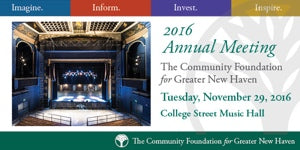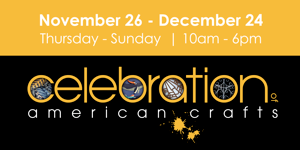A photo essay. (To view all photos, check out the email version of this story.)
When we featured him last November, local sculptor Mohamad Hafez was steeped in profound turmoil, watching from afar as his homeland, Syria, was torn apart by civil war. His architectural artwork, which he’d started years before with modest, lightly textured facades of Syrian buildings—meant to be a salve for simple homesickness—had evolved into large, technically refined cityscapes and abstractions imbued with sharp emotional and moral content.
A year (and a new studio space) later, the works have gotten larger, more refined and sharper, right along with his inner anguish. As the war in Syria continues, he’s also watched his adopted homeland, America, endure a scorched-earth political season, whose resulting president-elect has openly stoked fear of immigrants and Muslims—so, people like Hafez.
sponsored by
Confronted with that sort of hostility, most of us would react in kind. Not Hafez. “The easier instinct is to get angry,” he says. “But it takes compassion to understand and deal with people. That’s my journey [now]. I’m taking this all in. I’m trying to understand where both sides have failed, and what it is that people are upset about, to be able to have a dialogue between everybody.” He hopes that his work—whose primary themes, like the meaning of having a home and the scourge of authoritarianism, tend to be universally resonant—can create some of that dialogue.
Yet he is not without fear, for himself and his family. Given the current climate, he worries that the fruits of the 13 years he’s spent building a life here—finishing his education, becoming an architect, buying a home where he lives with his wife and parents—could be taken away. “What’s going to happen? Are we going to be deported? Will we have to register because of our religion?” Being a Muslim immigrant from the Middle East, he feels he must be very careful to avoid directly criticizing politicians in either of his homelands. “I come from a country where you would lose your life and your family would be imprisoned and tortured if you attacked any politician in power,” he says. Now, even in America, part of him thinks, “If you’re a minority, you can’t afford to talk politics anymore.”
sponsored by
But that hasn’t stopped Hafez from speaking through his art, where his voice has only become stronger and, in some cases, more blunt. In His Majesty’s Throne, one of his largest and most intricate sculptures, pipes like tentacles descend from a palatial bathroom, evacuating metaphorical feces onto the leader’s subjects, who are represented by a massive jumble of modest homes. The leader himself is represented in a gilded portrait, containing a mashup of features pulled from infamous authoritarians.
Meanwhile, Hafez’s “Baggage” series, incorporating suitcases as vessels for various scenes, has evolved into some of his most evocative work. A pervasive sense of uprootedness—of essentially having to live out of a suitcase—is familiar to immigrants, Hafez notes, and the specter of upheaval created by this past election’s rhetoric is bringing that feeling back, even among those who are well-established. “[Immigrants and refugees] feel that we are again living out of our suitcases,” he says. “Even those of us who hunker down and say, ‘We’re not going anywhere,’ we cannot help but feel that anxiety.”
Although his art is inspired by immigrant and refugee experiences, Hafez believes the notions he’s exploring transcend any particular point of view. “All of us have baggage,” he says, evincing that compassion he mentioned earlier, with the hope that the rest of us can respond in kind.
Mohamad Hafez
West River Arts – 909 Whalley Ave, New Haven (map)
mhafez100@gmail.com
www.mohamadhafez.com
Written and photographed by Dan Mims.










